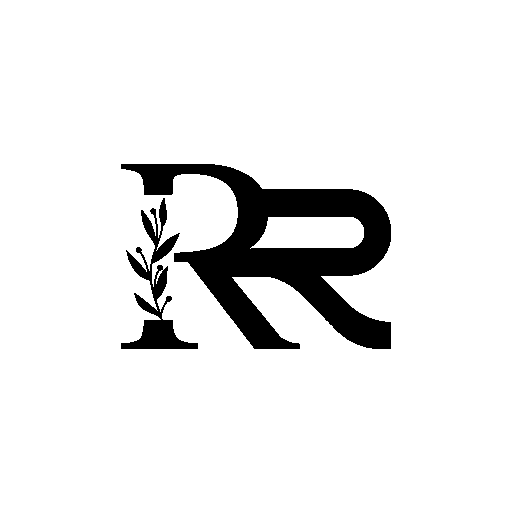Physical Address
304 North Cardinal St.
Dorchester Center, MA 02124
Physical Address
304 North Cardinal St.
Dorchester Center, MA 02124
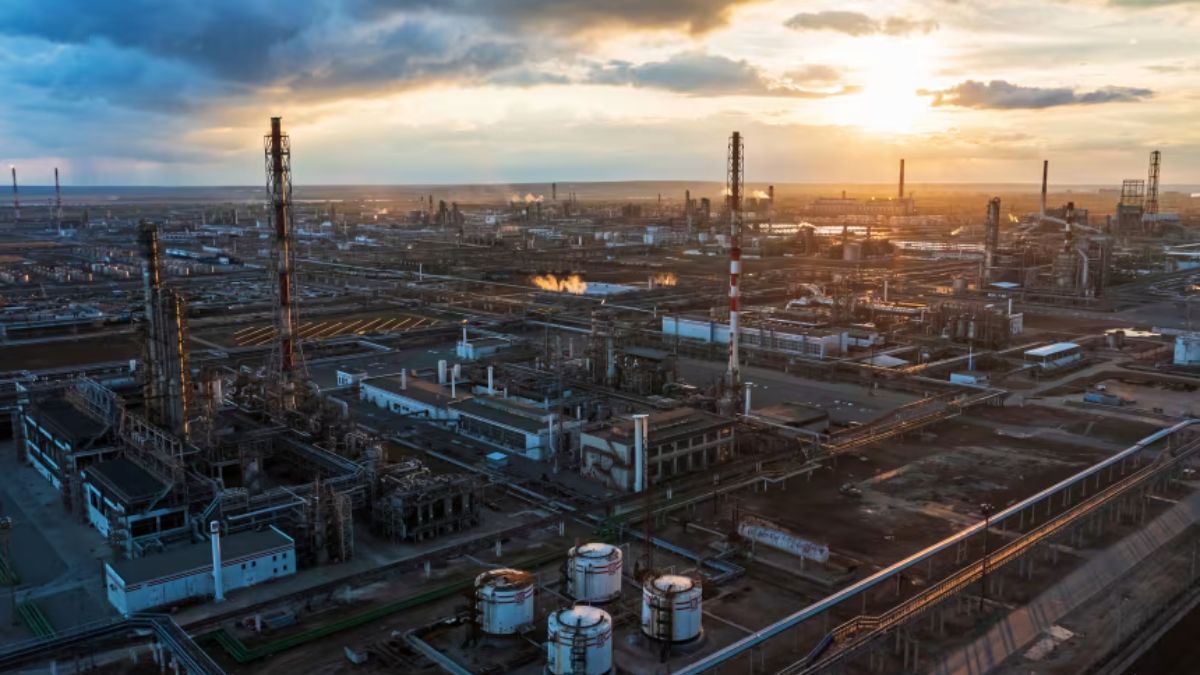
In a foreign policy initiative, Donald Trump challenges the Atlantic partners to adopt radical policies in response to Russian energy and commerce. In a Truth Social post Saturday, Trump said he is “ready to do major Sanctions on Russia when all NATO nations … stop buying oil from Russia”—in effect, making any US sanctions on Moscow contingent upon equivalent moves by every NATO ally. At the same time he pressed the alliance to impose 50-100% tariffs on Chinese imports, arguing that this could cut off Beijing’s economic lifeblood to Russia. The result, Trump claimed, would be a quicker end to Russia’s war in Ukraine. “If NATO does as I say,” he added. “the WAR will end soon.”……Trump’s demands were set out in the form of a letter to NATO–and “the world”–whereby they became strict stipulations rather than suggestions made together with allied governments. He reproved the Alliance’s vow to stick with open money that “only leveled off at less than 100 per cent”, and called it shocking that some of them still buy oil from Russia. In effect he told friends and allies that the US will in its turn “hit ‘go’ on energy sanctions” only if they first stop buying Russian fuel. He listed two minimum conditions: NATO must stop importing (any) oil from Russia, and jointly put huge tariffs on China’s exports.
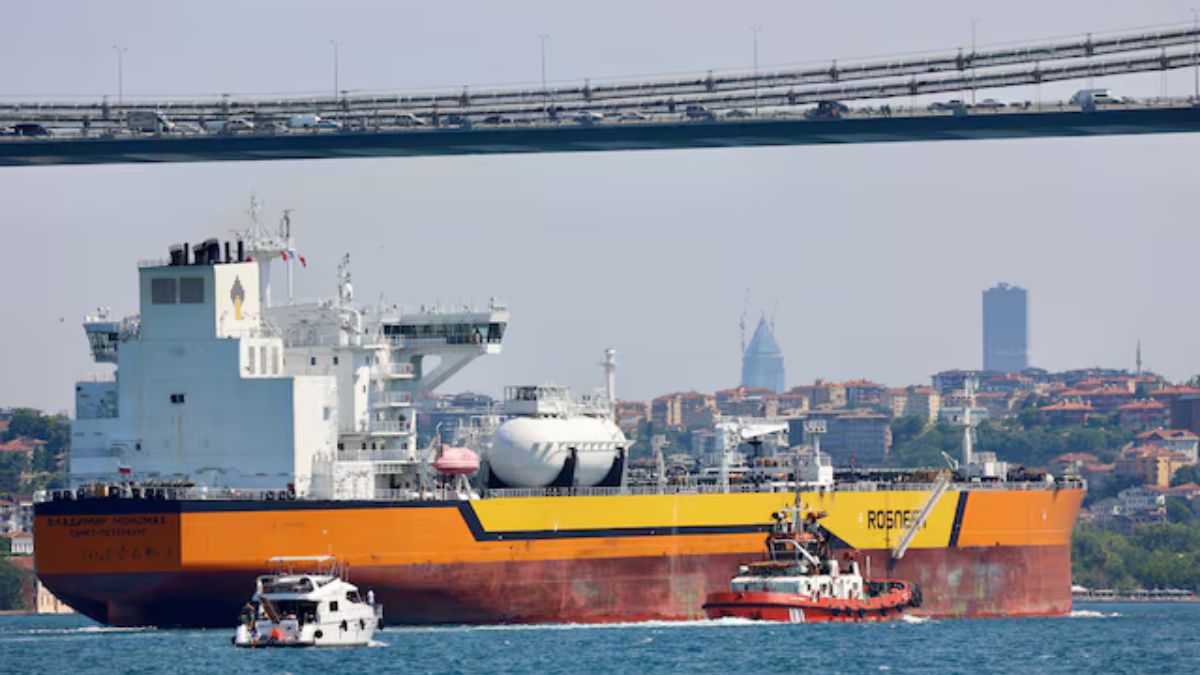
Trump made it clear that new sanctions against Russia by the United States could not be imposed until all members of NATO have agreed to stop buying Russian oil. “I am ready to do major sanctions on Russia,” he Tweeted, “but only when all NATO Nations agree and start it themselves. \the same thing goes for sanctions against China. “All NATO Nations,” said Trump in another Tweet, “are required to put very high (50 – 100%) tariffs on Chinese goods, as a collective group. “China has over control, if not a complete grip, of Russia and these strong Tariffs will break that grip,” Trump explained. He suggested such a countrywide boycott also puts a two-pronged economic squeeze on Moscow: oil revenues are choked off, while China is punished for supplying it with both the means and a ready market.
Trump was explicit about the timing of the U.S. sanctions: they will not “go” until the alliance acts first. “I am ready to ‘go’ at any time want. Just tell me,” he challenged NATO. This represented a dramatic shift in tone from previous American lobbying of allies (especially under former presidencies) to simply “do more?”
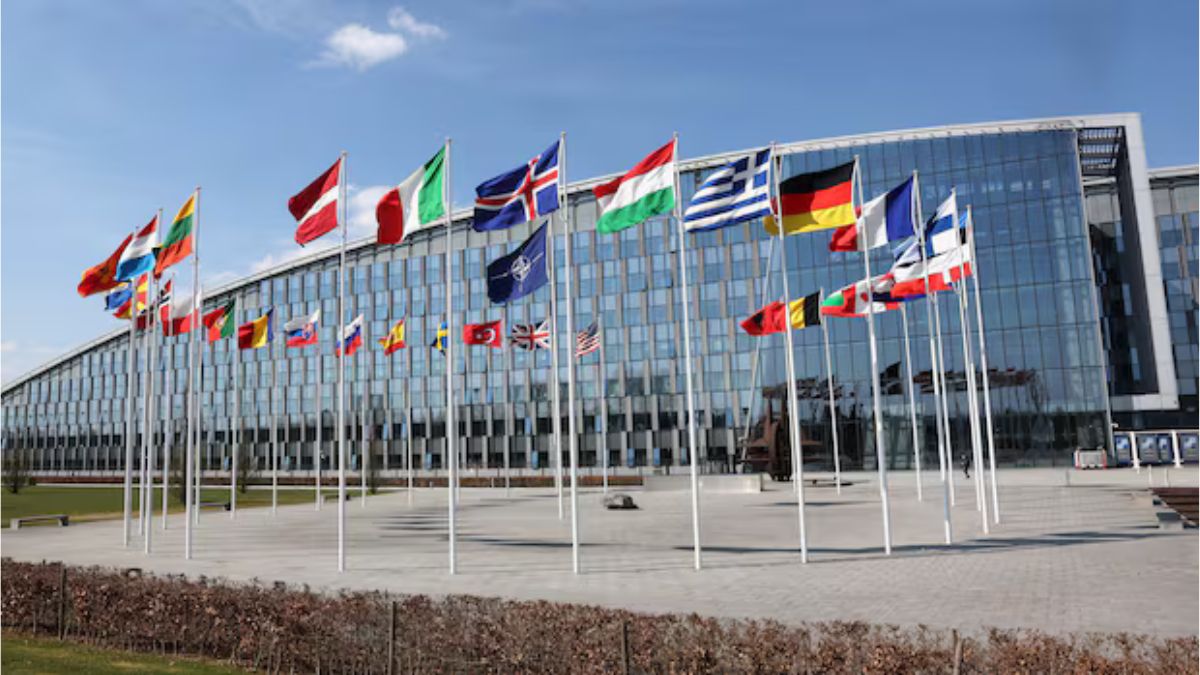
While most European allies have slashed Russian oil imports, not all have. A small number of countries still represent a disproportionate amount of Moscow’s remaining oil sales suggests some estimates: it is Turkey (an EU–but non– member NATO and a few EU countries of which the current governments are close to Putin). As of 2023, Turkey has been the third -’s largest buyer of Russian oil (only China and India are ahead) and within NATO only China and India match it in scale. Within the EU. Hungary and Slovakia do a fair trade in oil. An ABC News analysis in July 2025 calculated that as of August, the EU as a whole was still buying about 6 per cent of Russia’s crude exports -roughly what Turkey takes. Elsewhere in Europe, everyone else shut off Russian oil after the 2022 invasion.
In practical terms President Donald Trump’s demand set a tough barrier: NATO must have those four small – to medium-sized states –Turkey, Hungary, Slovakia and Slovenia– shut off Russian oil completely if it is to stand together on sanctions.
′These [China] tariffs,’ as Trump announced today (May 8th), ′that’s the price we pay for being the world’s policeman.′ Trump put UK duties on China at $200 per tonne then but on made-in-America cars and trucks also at $300 per tonne at least. In turn all other countries except Japan impose higher tariffs on Chinese products than Americans pay on land.
In practice, this would mean either much higher duties than those now in force or worse still heavy losses by US business. Indeed a former U. S. trade envoy called it “the worst of both worlds”. The U.S.-China tariffs are already high as a result from Trump ’s previous trade war. Earlier this year, the U.S. had cut tarffls on Chinese goods to 30 per cent (theirs were 10 per cent) as part of a truce.
Trump’s proposal would reverse that agreement. He has also penalised India, according to one diplomatic source, for the purchase of low- priced Russian crude by slapping on an added 25 % tariff to make India’s duties 50%. Washington has so far not gone after China for purchases.
The idea of tariffs at 100% horrified many experts in the field. When President Trump first struck China with tarifls in 2018, some popular items went up to 25% and even 145%. Those extremes in rates have been widely suspected as rea-.sons for Chinese retaliation and then concern If there is a full-blown trade war. To raise them again to 50–100% will almost certainly cause Beijing react in kind.
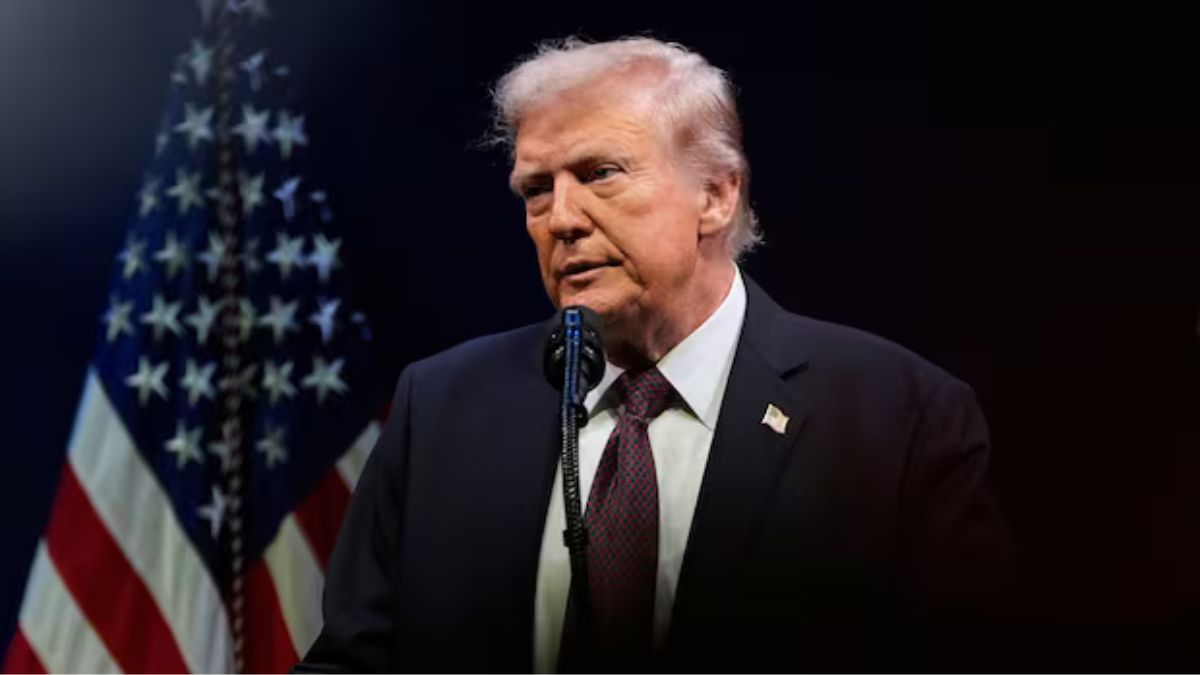
Trump’s ultimatum was on NATO, not EU which is a diplomatic twist. EU, as Europe’s main economic bloc itself has its ownsanctions rules. EU President Ursula von der Leyen underlined that the EU sanctions are “not extra-territorial.” But insofar as common practice goes, most Russian oil has been shut off by the EU and rates lopped; the shall happily bring more drastic sanctions despite unwilling partners such as India or China. Trump’s plan has not been officially commented on by NATO as an organization. As defenders of Europe–their recent focus–NATO just set up a small mission to bolster security on the eastern flank anti-Russian drones violated Polish airspace. That is well outside NATO’s core job of collective defense. However, China immediately dismissed the idea. In Slovenia, Foreign Minister Wang Yi said “Grace is only complicates” conflicts and cautioned against a new trade blockade. Nor did Moscow take the ultimatum seriously. They called it a ‘politically motivated piece of theater. ‘In the meantime, the leading power figures in countries most likely to feel there are no immediate concessions. Turkish President Erdoğan has deep energy links with Moscow, while Hungary’s Viktor Orbán repeatedly vetoes any collective EU measures against Russia. Some of the NATO’s hawks have publicly questioned Trump’s course, saying it is mere political theater rather than realistic policy.
Experts warn that the fortunate impact of this could in fact be severe. If Russia cuts off half its oil supplies to the rest of the world, prices may well rise globally. Even Americas where aggressive embargoes are placed on Moscow’s crude wonder if it risks “driving up global oil prices,” and what that might mean for growth and public opinion in the West. Europeans still remember the 2022 “energy crisis”, when Russia’s war sent bills for all fuel up to heaven. Higher tariffs on China could also disturb markets in much the same way: talk of another U.S.-China trade war has many investors concerned for future global growth prospects. Many economists think that China
More profitable duties on the part of the People’s Republic or others could damage American exporters.
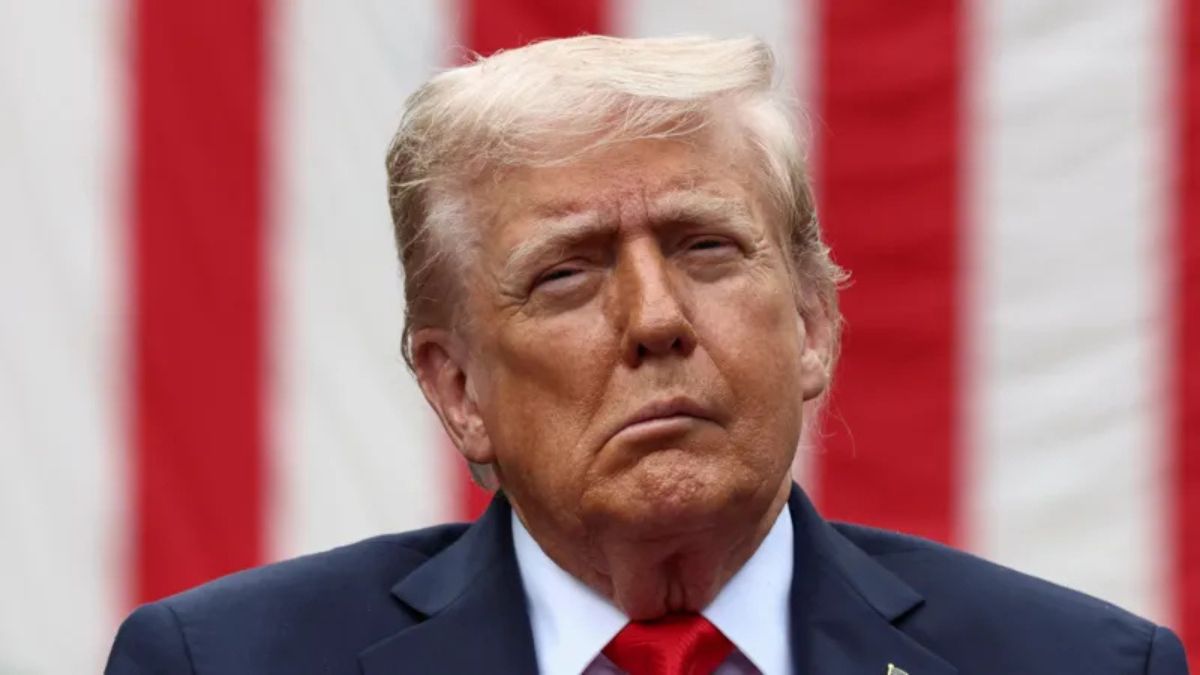
In the wake of the Crimean annexation by Russia in 2014, the US, the EU and allies together levied sanctions on Russia’s financial and energy sectors. In the latest stage of this trend, after a full-strength war scare caused Europe to ban most maritime oil imports from Russia, it also enlisted price controls and the US put in place sweeping financial restrictions. While it is true that Trump’s personal story is complex, during his tenure of office he accused European countries of buying Russian gas and described Germany as “captive” to Russia through the Nord Stream 2 pipeline. However, at the same time he signed the Countering America’s Adversaries through Sanctions Act in 2017, and this meant sanctions often took a passive approach. On trade, Trump imposed hundreds of billions of dollars ‘ worth of tariffs on Chinese imports, the highest reaching 145 percent on some items. At the same time he increased U.S. tariffs for buying Russian oil to 50 per cent over Indian goods. NATO in the mix is an unusual aspect, as NATO has not historically exercised collective trade sanctions.
Some felt that Trump’s request was more bluster than a practical plan. Others affirmed that West should halt all Russian energy buys but questioned whether an authoritarian leader such as Erdoğan or Orbán would go along with what Trump told them. Ukrainian President Volodymyr Zelenskyy welcomed the idea of added sanctions and tariffs. “The idea of adding tariffs to the states that go on making deals with Russia […], is the correct one,” he said. China’s leadership warned that yet more sanctions could only “complicate” the situation. Economic analysts stressed this risk, pointing out that even talk of a modest oil price ceiling had already aroused heated debate in the world’s capitals due to inflation fears.
Turkey as of 2025 remains the largest NATO buyer of Russian oil, while Hungary and Slovakia still purchase Some NATO member states have phased out Russian crude since 2002.
Due to India’s Russian oil imports, Trump increased tariffs on Indian imports to 50 percent. As for China, America has tariffed around 30 percent at present; Trump is now pressing NATO to clubs together tariff rates at 50–100 percent.
NATO itself does not impose trade sanctions; that is usually left to the member states or the EU to handle JATO’s role is military defense, not economic policy.
Trump’s point is that collectively NATO countries can exert more pressure on Russia, and China However, it is rare because NATO is a defense alliance, not a trade bloc.
Experts doubt it. While cutting off Russia’s oil income would hurt Moscow’s finances, the risks of higher global prices and political blowback make it unlikely to produce a quick end. Tariffs on China might also stoke tensions without results.
If such things as tariffs and oil embargoes grow worse, Americans could suffer elevated fuel prices and higher costs on their imported goods Nevertheless, Trump argues that these short-term costs are necessary to weaken Russia and China.
President Biden’s strategy has focused on cooperative sanctions with the EU and G7, including oil price caps and export controls Trump’s approach puts the onus on NATO allies and links sanctions to common trade policies.
For the time being, Trump’s ultimatum is just that; a permission for Europe which no ally can soon comply. Turkey has shown no signs of ending its oil import operations, while the leader of Hungary still vetoes even an EU sanctions resolution. Focus NATO will continue on securing the east — not trade.
Similar tough on trade but soft on dirty methods toward investment projects are what Trump’s latest note to audience’s back home aims for. It also recalls Trump’s old flip-flops on Russia to voters in an election year, when hypocrisy does not play well.
In the meantime, the dispute over Ukraine continues just as Russia’s war chest grows heavy again. Trump was crystal clear that much depends now upon what NATO does in response to his call-or not at all.
Founder and Chief Analyst at Reflect Relay
I serve as a bridge between breaking news and strategic insight. With a background in Business, Tech, News and Lifestyle, I write about the future of business and technology — not the usual way things happen today, but the new things that will shape those arenas. And the clarity to go forth is my job.”
Leading the future of data intelligence. From AI-powered insights to actionable business dashboards, we turn information into your competitive advantage.
OUR PROMISE TO YOU
✓ Clarity over clickbait.
✓ Depth over speed.
✓ Context over noise.
Thank you for reading.
© 2025 Reflect Relay. All rights reserved.
We use cookies to improve your experience on our site. By using our site, you consent to cookies.
Websites store cookies to enhance functionality and personalise your experience. You can manage your preferences, but blocking some cookies may impact site performance and services.
Essential cookies enable basic functions and are necessary for the proper function of the website.
These cookies are needed for adding comments on this website.
Statistics cookies collect information anonymously. This information helps us understand how visitors use our website.
Google Analytics is a powerful tool that tracks and analyzes website traffic for informed marketing decisions.
Service URL: policies.google.com
You can find more information in our Privacy Policy and .
